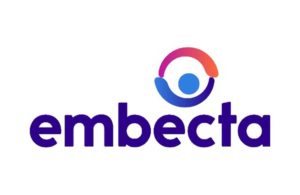
Unlike most “new” companies, Embecta enters the playing field with nearly a century of history in diabetes.
Nearly one year after BD (NYSE:BDX) announced its intent to spinoff its diabetes business, Embecta (Nasdaq:EMBC) now stands on its own.
On April 1, the spinoff was made official, and Embecta became a standalone, publicly-traded company aiming to make waves in the diabetes industry. However, unlike most companies just entering the space, Embecta comes in with a wealth of experience, according to former Worldwide President of BD Diabetes Care and new Embecta CEO Devdatt Kurdikar, who spoke with Drug Delivery Business News following the spinoff’s completion on April 1.
“Our mission is to develop and provide solutions for people with diabetes, Kurdikar said. “While we might be a newly listed company today, we have a 98-year history of being in this business. Insulin itself has been used to treat diabetes since 1922, and just two years after that, we introduced the first specialized syringe for the delivery of insulin. We’ve been making injection devices for insulin ever since.”
Embecta will be headquartered in the New Jersey area, Kurdikar said, although it will be in its own facility and not in BD’s Franklin Lakes, New Jersey, headquarters.
CFO Jake Elguicze, who joined the day the spinoff was announced in May 2021, told Drug Delivery Business News that Embecta enters the fray with scale at about $1.2 billion in annual revenue, a strong geographic reach and no particular ties to any one product.
Elguicze pointed out that, straight out of the gates, Embecta will have financial flexibility with a mixture of payable debt and fixed-rate capital that is termed out, meaning the company can avoid near-term maturities while maintaining the ability to pay down debt if it chooses.
Diabetes tech has been a hot space. Many companies — including Dexcom, Insulet, Bigfoot Biomedical, Senseonics, and Tandem Diabetes Care — have come out with next-generation CGMs, insulin pumps and more.
The plan is for Embecta to make necessary investments, increase research and development and create a company capable of driving sustainable, increased constant currency revenue growth rates moving forward, Elguicze said.
“Candidly, I think Embecta is uniquely positioned,” Elguicze said. “We have an established distribution network, commercial infrastructure and manufacturing footprint — all of which is coming with the deal. Our business today is a very, very highly profitable and cash-generative business. … Our capital structure is going to allow us that that flexibility to both make those internal organic investments as well as — to the extent that M&A becomes available along with partnership opportunities – we certainly would look to do things in that area as well.”
Embecta begins with BD’s historical business in the insulin administration space, having been established as a leader in injection devices and insulin delivery through infusion.
The next steps include developing an insulin patch pump system designed for people with type 2 diabetes. Kurdikar noted that currently available insulin patch pumps have been developed for type 1, but Emebecta is looking to address the differences between user needs and preferences that separate the two types of diabetes.
Embecta’s patch pump has breakthrough device designation, and Kurdikar said it’s been helpful to work hand-in-hand with the agency to understand regulatory requirements amidst the development and align the company’s understanding with that of the FDA. Kurdikar said the patch pump creates an “exciting opportunity” from an M&A and partnership standpoint as well.
“Healthcare IT types of ecosystems are being developed, and those are areas that we will look at all with the intent of ‘how do we widen our product portfolio and make sure that we have a suite of market-appropriate products?’ because the needs and affordability concerns in emerging markets are going to be very different than they are in developed markets,” Kurdikar said. “We want to have a suite of products that we can use and really leverage the strength that we have in both developed and emerging markets for R&D, M&A and partnerships.”
While Embecta has established offerings in insulin delivery, the patch pump is a new market to penetrate, but Kurdikar sees the unique value of the product for type 2 diabetes as a difference-maker in terms of stacking up with the competition in the space.
Plus, the company enters with an existing pharmacy channel and relationships with payers on top of the fact that potential patch pump users may already be injecting themselves today with Embecta’s products, allowing for the company to reach those users and educate them when the new device is made available.
Kurdikar said the spinoff ultimately gives Embecta the platform to find its own way in the diabetes market as the company looks to hit the ground running.
“This spin is this consistent with the BD 2025 strategy,” Kurdikar said. “Diabetes is a large, growing market with unmet need. This is a business that has strength, revenue is strong and stable and we are a profitable business. … We see a lot of benefits with being our own independent company and a chance to really make progress in our vision while having the financial flexibility, the talent and the ability to make decisions faster. That’s far more enhanced with the split.”

